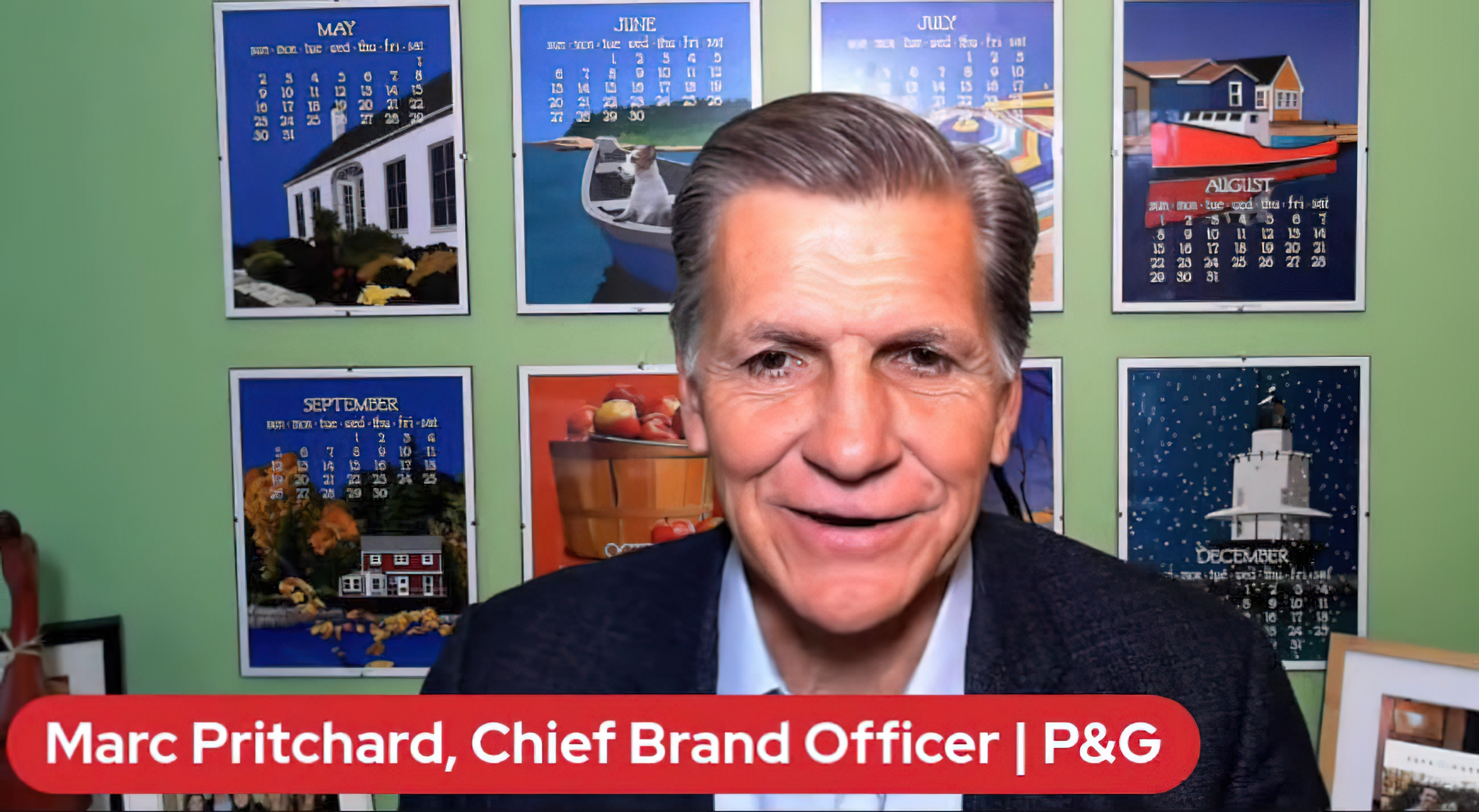P&G's Marc Pritchard: Brands can be force for good


Marc Pritchard says his path in marketing for Procter & Gamble became clear during a spiritual retreat in the Colorado mountains years ago. “At the very end of this retreat, the leader came to me and said, ‘You know, I hope you know the good you can do, because you're in business and business will someday be the greatest force for good. If you choose to do so, you can do a lot of good.’ And it was this really kind of blinding moment of clarity for me when I thought, ‘Wow, maybe that's really my destiny.’”
The now-chief brand officer for P&G was then running the “Easy, Breezy, Beautiful” campaign for CoverGirl. “We had just created the advertising campaign, but the spokespeople were too young, too thin, and too white. They did not represent a standard of beauty that was accurate,” Pritchard recalled. “I said, ‘We've got to change this.’ So we ended up changing to have a different standard of beauty, a realistic and accurate standard of beauty. We brought in people like Queen Latifah, Ellen DeGeneres, and Drew Barrymore. And over time we brought in Pink, Janelle Monae, and a number of different, amazing people. I tell that story because what that did is it showed me the power of advertising and the power of brands.”
Pritchard was the latest guest in the Farmer School’s Executive Speaker Series. In nearly 40 years at P&G, he’s held 25 positions in the company, starting as a cost analyst in the paper division in 1982. “Then I ended up working in the corporate area as a financial analyst where I did a lot of strategy work. I worked for a lot of the senior managers, and then they said, ‘Look, we think you have potential to run parts of our businesses, so we'd like to get you into marketing.’ So I got into marketing. From there, I ended up becoming a general manager in multiple businesses for skincare, then cosmetics, then I became a president, and then I became the chief marketing officer. I ended up changing the name to chief brand officer because we're a company of brands,” Pritchard recalled.
He said his desire to use brand advertising as a force for good continued with the Always brand’s “Like-A-Girl” campaign. “We identified an insight that young women have a huge drop in confidence at puberty, not because of their periods or other things, but because of insidious phrases like, ‘You do that like a girl,’ which is a demeaning and a diminishing phrase. And we said, ‘You know what? We're going to flip that. We're going to make that phrase mean amazing things,” Pritchard said. “And literally after a couple of years of this advertising, it changed the meaning of the phrase. Originally, 19% of the people before they watched ‘Like-A-Girl’ thought it was a positive phrase. After, 76% of people thought it was a positive phrase. So that's a change in the meaning, and that's what we can do.”
“The best way to find things that will resonate with consumers is spending time to ensure that we understand what their needs are, what jobs they need to get done and problems they need to solve, and then create or identify an insight that we can then communicate,” Pritchard remarked. “It’s consumer understanding and consumer insight. Discovering what the job to be done is, and bringing it to life in a clever way.”
He said that the advice he’d give to new college students is much the same as he would give graduates entering the work force. “Focus on hard work and just putting the work in. There's just no substitute for that. Build the habits, build the discerning mind, build your curiosity. I think I may have been a sophomore when I finally realized that a lot about going to college was about learning to learn. You're building the skills to be able to make connections that may be non-obvious connections. And that will bode well for you because as you gain that knowledge and you learn how to learn, you learn how to analyze. You learn how to come up with ideas and make things happen. Then that creates, over time, experience. You get that experience and that creates innovation.”
Pritchard said that if he could go back and give himself advice when he was in college, the advice would come down to two words: Be useful. “I wake up every morning and I pray for the strength to be useful to whoever I come in contact with, whether it be my colleagues, people who work with me, people who I'm on a Zoom call with, trying to make a decision or help them out, or to be useful to the audience that I'm speaking with,” he said. Having that very simple mantra has helped me a lot because what it does is it helps me get outside of myself. What happens too often is we think about ourselves and we think sometimes about ourselves to our own detriment because we're worried too much about us. So the best thing to do is to start thinking about other people and look outwardly, and when you can do that and be useful to other people, then it actually makes your life a lot better.”

